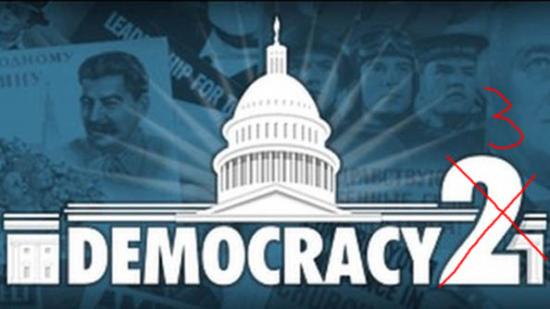Democracy 3 is out now; here’s our Democracy 3 review.
A lot of what this site covers involves the interaction between guns/blades/blunt instruments/fists and flesh/bone/adamantium. so whenever a game comes along which does something different it’s a breath of fresh air. And, well, if it’s about politics and economics then consider my glasses removed, wiped, and replaced in interest. That’s exactly what Cliffski – he of Gratuitous Space Battles fame – has gone and done, announced that he’s hard at work on Democracy 3. Sequel to the popular Democracy 2 and, by a shocking twist of fate, grandchild to the ancient and original Democracy.
The new entry to the series began life as a comprehensive visual update to Democracy 2, addressing its ageing engine and resolution constraints. From there, though, it expanded into an update to all the games major systems, bringing them into better reflection of the political and economic climate.
In the below dev blog Cliff ‘Cliffski’ Harris goes through the changes he’s implemented so far and it makes for a fascinating watch.
We can see how the game is being brought up to date with global happenings in the changes to the game’s finance system. In the previous game if your debt got too high in regard to your GDP then you failed. Now, you can keep playing but your credit rating will plummet and securing nationalloans becomes more difficult. Hopefully, Democracy 3 will launch with some approximate real world scenarios so you can have a Fate of the World-style made grab to save a contemporary virtual Europe from the effects of the credit crunch. Or, conversely, drive it into the ground as quickly as possible.
The addition of the private sector is particularly interesting. In previous games if you didn’t have the state provide something then it didn’t exist. For instance, as Cliffski goes into in a blog post, if you skimped on state schools then illiteracy would rise universally. There was no private school system to step in to educate the children of wealthier families. Now, there’s an automated system that’s informed by GDP and state provision, so, if you don’t invest in state schools but you have an otherwise wealthy nation then private schools will begin to fill the void. The same goes for hospitals, housing, and pension schemes. I don’t know but would hope the same rule extends to the police and army (I’ve contacted Cliffski to find out).
There’s a whole lot more of interest in the video so do give it a watch.
Democracy 3 is due out later this year.
